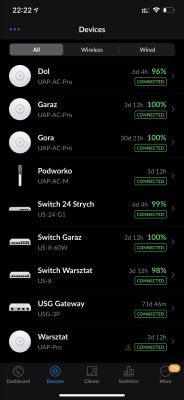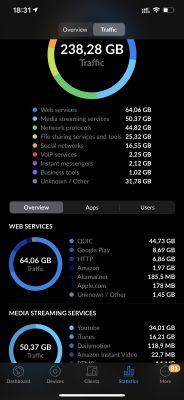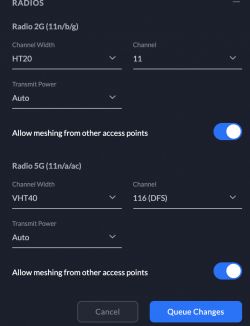I would like there to be several (5 maybe) access points in a detached house so that the whole house and garden would be covered with wifi.
The simplest advice I have found is to give the same wifi name and password (different channels) to each AP (connected by cable to one switch). Does this really work without problems? If I download files on my laptop, won't it break the connection when it switches between APs? Do I need to buy any special APs? Any other advice for the networking layman?
Another solution is to use repeaters around the access point, but that's probably a bad idea.
Some people have mentioned something about unifi. Is it worth getting into that? As well as wifi I might be tempted to get some sort of NAS and some surveillance cameras.
The simplest advice I have found is to give the same wifi name and password (different channels) to each AP (connected by cable to one switch). Does this really work without problems? If I download files on my laptop, won't it break the connection when it switches between APs? Do I need to buy any special APs? Any other advice for the networking layman?
Another solution is to use repeaters around the access point, but that's probably a bad idea.
Some people have mentioned something about unifi. Is it worth getting into that? As well as wifi I might be tempted to get some sort of NAS and some surveillance cameras.





